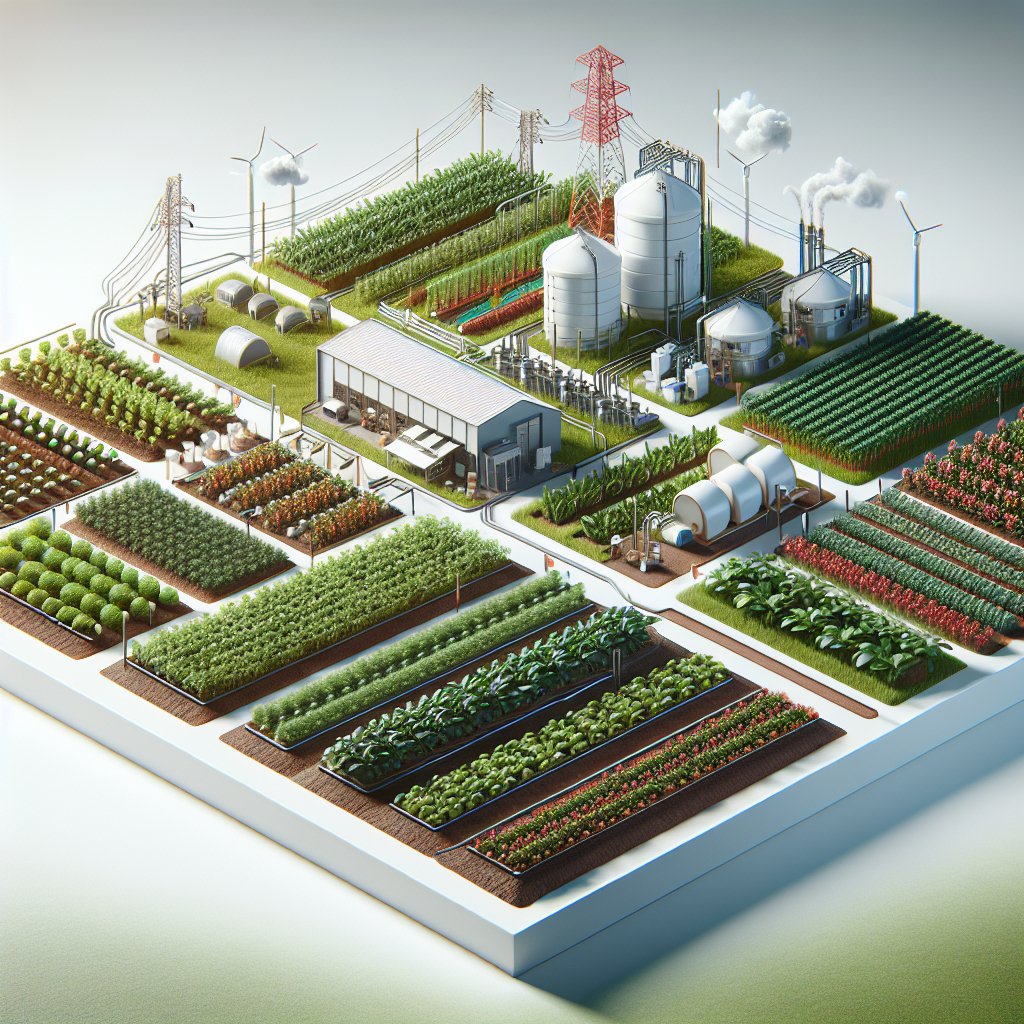Organic farming has gained significant attention in recent years due to its potential benefits for both farmers and consumers. This agricultural practice, which avoids the use of synthetic fertilizers and pesticides, emphasizes the use of natural processes and materials to enhance soil fertility and control pests. As more people become aware of the environmental and health impacts of conventional farming, organic farming presents a sustainable alternative that promises numerous advantages.
Advantages for Farmers
One of the primary benefits of organic farming for farmers is the potential for increased profitability. Although organic farming can require more labor and management, the premium prices that organic products command in the market can lead to higher overall returns. Consumers are often willing to pay more for organic products due to their perceived health benefits and environmental friendliness, which can translate into better income for farmers.
Moreover, organic farming practices can lead to improved soil health. By using crop rotations, cover crops, and organic fertilizers, farmers can enhance soil structure and fertility, leading to better crop yields over time. Healthy soil is more resilient to erosion and can retain water more effectively, reducing the need for irrigation and making farms more resilient to drought conditions.
Another significant advantage is the reduction in input costs. Organic farming eliminates the need for expensive synthetic fertilizers and pesticides, which can be a substantial financial burden for conventional farmers. Instead, organic farmers rely on natural pest control methods and organic composts, which can be produced on the farm, further reducing costs.
Additionally, organic farming can lead to increased biodiversity on farms. By avoiding chemical inputs and promoting diverse crop rotations, organic farms can support a wider range of plant and animal species. This biodiversity can enhance ecosystem services such as pollination and pest control, further benefiting the farm’s productivity and sustainability.
Benefits for Consumers
For consumers, one of the most compelling benefits of organic farming is the potential for improved health outcomes. Organic products are often perceived as healthier because they are free from synthetic pesticides and fertilizers, which can leave residues on food. Some studies suggest that organic foods may contain higher levels of certain nutrients, such as antioxidants, which can contribute to better health.
Furthermore, organic farming practices are generally more environmentally friendly than conventional methods. By avoiding synthetic chemicals, organic farming reduces pollution and the risk of chemical runoff into waterways, which can harm aquatic ecosystems. Consumers who choose organic products are supporting farming practices that prioritize environmental sustainability and the preservation of natural resources.
Organic farming also promotes animal welfare. Organic livestock are typically raised in more humane conditions, with access to outdoor spaces and a diet free from antibiotics and growth hormones. For consumers concerned about animal welfare, purchasing organic products can be a way to support more ethical farming practices.
Finally, the rise of organic farming has led to increased transparency and traceability in the food supply chain. Organic certification requires rigorous standards and regular inspections, providing consumers with assurance about the origins and production methods of their food. This transparency can build trust between consumers and producers, fostering a more informed and engaged consumer base.
Challenges and Considerations
Despite the numerous benefits, organic farming is not without its challenges. Transitioning from conventional to organic farming can be a complex and costly process, requiring significant changes in farm management practices. Farmers must navigate a steep learning curve and may face initial decreases in yield as they adapt to organic methods.
Additionally, organic farming can be labor-intensive, requiring more hands-on management and monitoring to ensure crop health and pest control. This increased labor demand can be a barrier for some farmers, particularly those with limited access to labor resources.
Market access and competition can also pose challenges for organic farmers. While demand for organic products is growing, farmers must compete with both domestic and international producers. Ensuring consistent quality and supply can be difficult, particularly for small-scale farmers who may lack the resources to invest in marketing and distribution.
For consumers, the higher cost of organic products can be a deterrent. While many are willing to pay a premium for organic goods, others may find the price difference prohibitive. This can limit the accessibility of organic products to a broader audience, potentially slowing the growth of the organic market.
Conclusion
Organic farming offers a range of benefits for both farmers and consumers, from increased profitability and improved soil health to better nutrition and environmental sustainability. However, the transition to organic farming requires careful consideration of the challenges and a commitment to sustainable practices. As awareness of the benefits of organic farming continues to grow, it is likely that more farmers and consumers will embrace this approach, contributing to a more sustainable and health-conscious food system.



